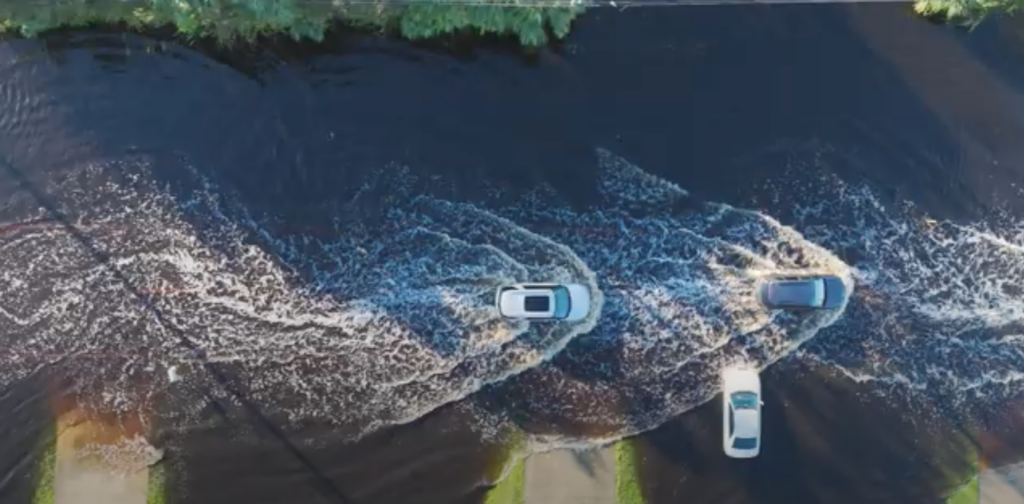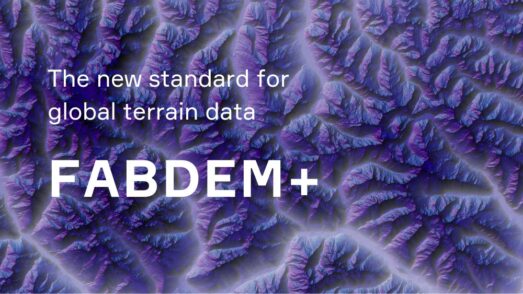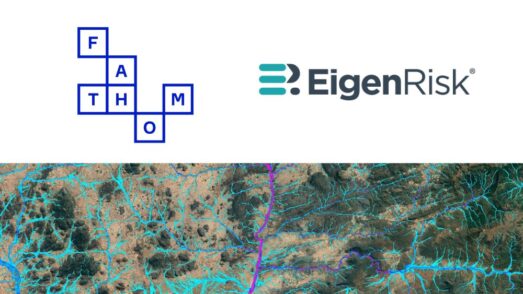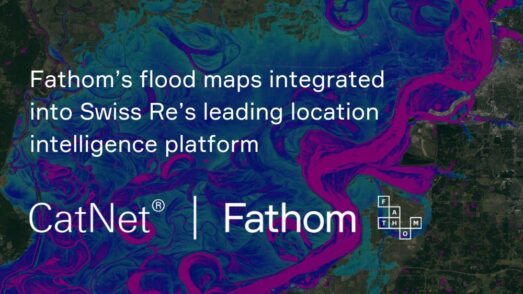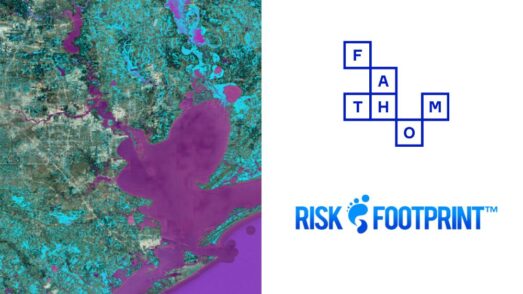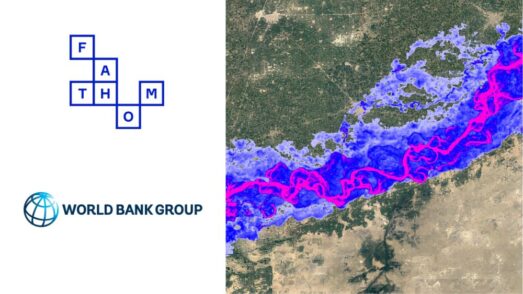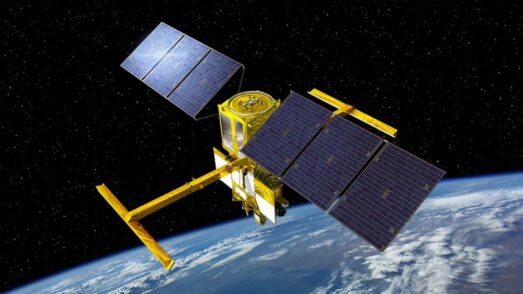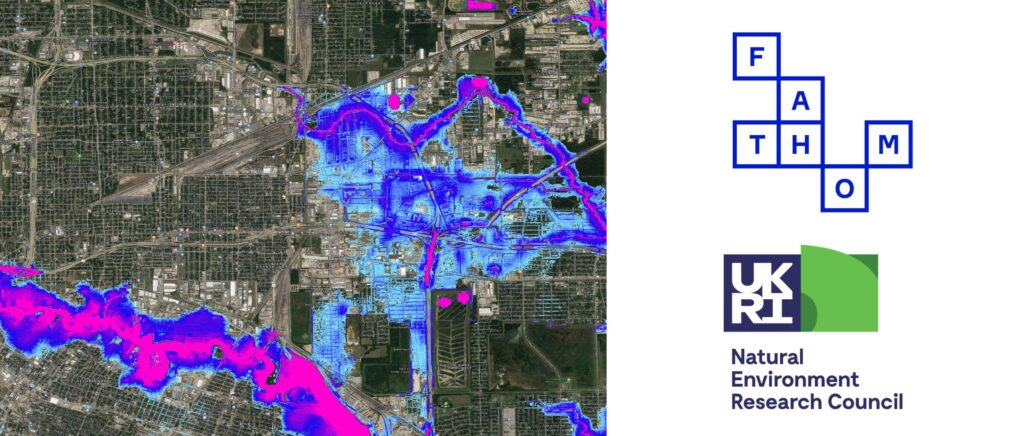
The Natural Environment Research Council (NERC) is delighted to announce the finalists and commended entries of its 2023 Impact Awards
The NERC Impact Awards 2023 shine a spotlight on the UK science at the heart of the responsible management of our planet, from using satellites to protect wildlife from space, to using wastewater to monitor the nation’s health. These are just some of the positive real-world impacts generated by UK environmental scientists on NERC’s 2023 Impact Awards shortlist, announced today.
The awards celebrate NERC-funded scientists, as individuals or teams, whose work has had a big impact on the economy or society in the UK or internationally.
The shortlist and judging were undertaken by independent panels of academic, industry and government figures, and public engagement professionals. We are proud to announce that Fathom has been shortlisted in collaboration with the University of Bristol, for its entry on ‘tackling the human and financial cost of flooding’.
Winners will be announced at a ceremony at the Natural History Museum on November 29, 2023. The event will bring together leaders and decision-makers from business, government and academia to recognise the diverse talent that is shaping our future. The winner of each category will receive £12,000, while an overall winner will receive £20,000. Runners-up are rewarded £7,000 to further the impact of their research.
Our submission
Co-led by Professor Paul Bates, Professor Jeff Neal, Dr Andrew Smith and Dr Christopher Sampson, our entry on ‘tackling the human and financial cost of flooding’ outlined the development of our pioneering flood models; an idea which was formed while Andrew and Christopher were working as researchers at the University of Bristol and resulted in the formation of Fathom. Today, the company has revolutionized decision-making and helps protect infrastructure around the world valued at over $1 trillion, by working with a wide range of NGOs, governments and organizations to improve their flood risk awareness, management and mitigation for the present day and against future climate change.
In addition to highlighting a number of our case studies, it also gave a nod to the NERC funding that we have been awarded in the past. This has ranged from PhD studentships to major projects, with the NERC Strategic Research Impact programme particularly valuable to support the proof-of-concept that led to the formation of Fathom.
Recognizing talent
On the news, Professor of Hydrology at University of Bristol and Chairman of Fathom, Professor Paul Bates, said:
“We’re absolutely delighted to have been shortlisted for this prestigious award. Fathom has a fantastic record of taking cutting edge science and using this to better protect people, businesses and the environment from floods so we think we have a great story to tell and are looking forward to the awards ceremony on 29th November.”
On the announcement, Professor Peter Liss, Interim Executive Chair of NERC, said:
“The Impact Awards provide us with the opportunity to recognize the thriving community of people working hard to reveal the state of the environment and how we can respond.
We received outstanding enthusiasm for this year’s competition. The impacts of all the entries are far-reaching. I was impressed to see that the 10 shortlisted entires address some of today’s most pressing issues, such as rapid biodiversity loss, climate change and the impact of the environment on human health. I look forward to celebrating the contributions of our shortlisted teams and individual researchers at the final stage of the Impact Awards in November.”
Other finalists
Other teams shortlisted include:
‘Spurring global action against ocean acidification’ by a team led by Professor Stephen Widdicombe at Plymouth Marine Laboratory
‘Shaping England’s new biodiversity net gain policy’ by Dr Sophus zu Ermgassen at the University of Oxford
‘Protecting subsea global telecommunications networks’ by a team led by Dr Mike Clare at the National Oceanography Centre
‘Using wastewater to monitor the nation’s health: onwards from COVID-19’ by a team led by Professor Davey Jones at Bangor University
‘Whales and walruses from space: using satellite imagery for conservation’ by Dr Hannah Cubaynes at British Antarctic Survey
‘Bringing together citizen scientists and regulators to monitor the River Wye and beyond’ by Dr Liz Bagshaw at the University of Bristol, Dr Roo Perkins and Elle von Benzon at Cardiff University
‘Protecting satellites with daily space weather forecasts’ by a team led by Professor Richard Horne at British Antarctic Survey
‘Speeding up climate change simulations to tackle global warming’ by Professor Piers Forster and Dr Chris Smith at the University of Leeds
‘Protecting sensitive species and habitats in Antarctica and beyond’ by Professor Richard Phillips, Dr Susie Grant, Dr Kevin Hughes and Dr Jennifer Jackson, all at British Antarctic Survey.
Five further entrants all received a special commendation from the judging panel. One such commendation was given to a research team led by one of our consultants, Professor Ivan Haigh, and his team at University of Southampton for research that has transformed our understanding of sea-level changes and coastal flooding.
We look forward to seeing more details released over the coming weeks about our submission.
For media enquiries, contact Jessica Roberts at j.roberts@fathom.global
If you would like to publish this story on your own website, images, videos and staff headshots can be found in our Media Kit.

